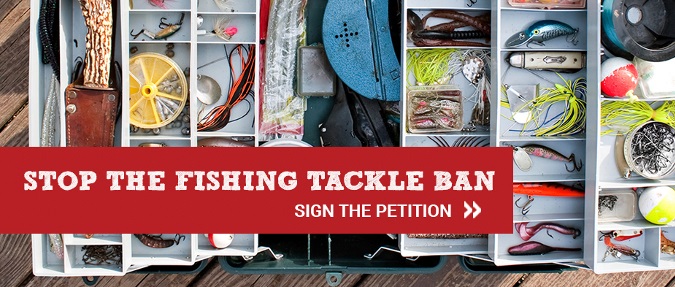
California’s leading advocate for recreational anglers expressed their opposition to Assembly Bill 2787 as currently drafted, authored by Assembly Member Bill Quirk, Democrat of Hayward, California.
“There is no science that justifies banning fishing weights found in nearly every California angler’s tackle box,” said Marko Mlikotin, executive director of the California Sportfishing League. “Making fishing too costly and less accessible will have a devastating impact on the state’s tourism industry and communities dependent on outdoor recreation for tax revenue and jobs.”
Due to the large size of the lead weights and sinkers identified in the legislation, AB 2787 may be the most far reaching ban on fishing tackle in the country and will clear out the inventory of most fishing tackle shops. Moreover, given the significant restriction placed on lead content, it is not certain whether alternative products exist in the market and by most estimations, alternative products can cost up to 20% more than traditional lead weights.
“Increasing costs and regulations have had a devastating impact on the state’s fishing participation rate, and funding for conservation programs dependent on fishing license sales” said Mlikotin.
While the nation’s fishing participation rate has increased, California is not sharing the same success. According to the U.S. Census, California ranks dead last in the country (per capita). Despite having one the Nation’s longest coastlines, over 3,000 lakes and reservoirs, and thousands of rivers, annual fishing license sales have decline 55% since 1980. The consequences have been less funding for the California Department of Fish and Wildlife’s (DFW) conservation programs and hatchery programs. Over the past five years, the number of trout plants have decreased by 39% and 50% in size, and the Governor’s 2018-19, calls for additional cuts in hatchery programs.
The legislation could not be more untimely as the California Department of Fish and Wildlife (DFW) has launched a new program that aims to address California’s declining fishing participation rate by Retaining, Recruiting and Reactivating (known as a “R3” program) anglers.
No Fishing Tackle Ban Petition
In response to the bill, the California Sportfishing League (CSL) has launched a “No Fishing Tackle Ban” petition that seeks to organize California’s 2.6 million anglers in opposition to the bill. To sign the petition, anglers are encouraged to view www.savefishing.com/StoptheFishingTackleBan.
Background
Assembly Bill 2787 states; “A person shall not manufacture, sell, or purchase a fishing eight or sinker in California that has no cross section greater than or equal to two centimeters (less than ¾ of an inch) in length, is under 50 grams (less than 1 ¾ ounces) in mass, and contains more than 0.1 percent lead weight.”
In 2010, President Obama’s U.S. EPA agency rejected a petition to ban lead fishing tackle and then in 2017 proposed a ban on his final day in office, without any new analysis or outreach to stakeholders. The Trump Administration overturned the decision.
To this date, no scientific study has ever been conducted in California that would justify the merits of this legislation and most notably, weights of such large size. Wildlife found in Canada and other parts of the U.S. are not common in California, and no study has determined that where fishing takes place in California, lead fishing weights have harmed wildlife. Therefore, before causing significant harm to communities dependent on outdoor tourism, studies should be required to determine whether fishing practices are having any significant impact on California wildlife.
“A responsible course of action is for the state to conduct a California specific study. We will continue our dialog with the author, but must oppose AB 2787 in its current form,” said Mlikotin.
The California Sportfishing League (CSL) is a nonprofit coalition of recreational anglers, and small business owners devoted to protecting access to recreational fishing. Recreational fishing contributes over $4.6 billion annually to California’s economy, a major contributor to outdoor tourism and jobs.
To learn more visit www.savefishing.com or Twitter @CASportfishing
